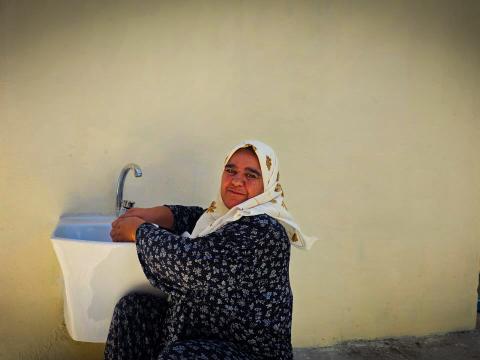Suad is more self-reliant now

Written by Ahmed Lateef Abid
The early challenges
At the age of two, Suad’s life took a devastating turn when a viral infection left her with hemiplegia in her lower legs. For years, Suad's daily existence was defined by struggle and adaptation: crawling to distant health facilities, even in the harsh extremes of weather, and enduring the physical and emotional toll that her condition imposed.
Living with her mother and extended family in her elder brother's home, she faced the added burden of sanitary facilities located far from her room.
"Due to the time it took me to reach these outdoor facilities, this meant enduring painful burns from summer heat and numbing cold in the winter. My limited mobility restricted my activities and my dreams of learning to sew," explains Suad.
Suad yearned for greater independence and comfort, dreaming of facilities within easy reach of her room and the opportunity to develop new skills.
Empowerment and independence
The rehabilitation work carried out was comprehensive and thoughtful. Sanitary facilities were built close to Suad’s living space, designed specifically to accommodate her needs. This adjustment alone revolutionised her daily routine, allowing her to manage personal care with ease and comfort. The newly accessible facilities alleviated the physical strain and emotional stress that had long plagued Suad’s life, providing her with renewed independence.
Transforming daily life
Previously, family members had to assist her in reaching and using the bathroom. Through World Vision’s Gender Equality and Social Inclusion (GESI) project, a proper access path was built with a suitable slope, allowing her to move freely on her own. The pathways were paved with concrete to ensure safe mobility. Additionally, in the latrine and bath areas, specialised seating and handles were installed, enabling her to use these facilities independently.
"This has made my life much easier, allowing me to feel more empowered and confident, and bringing a greater sense of happiness and independence into my daily routine," shares Suad.
This transformation extended beyond mere physical comfort: it touched her sense of well-being. With these barriers to wellbeing removed, not just a productive way to spend her time, but also a means of expressing her creativity and resilience.